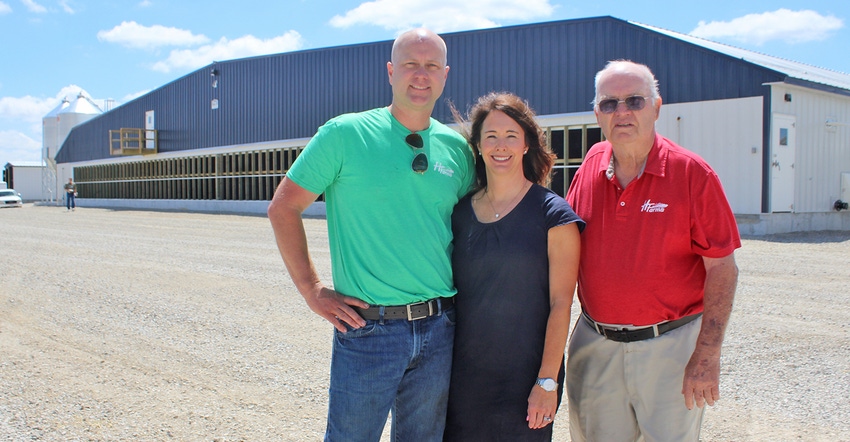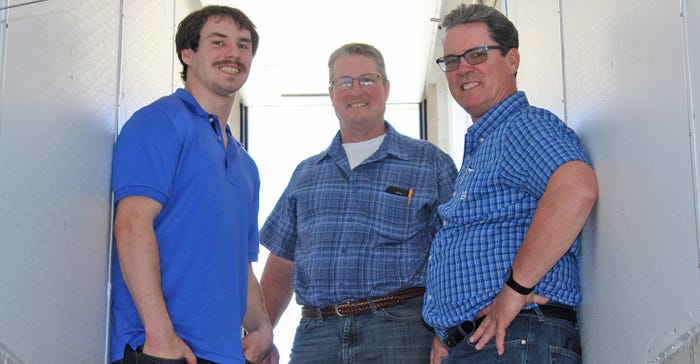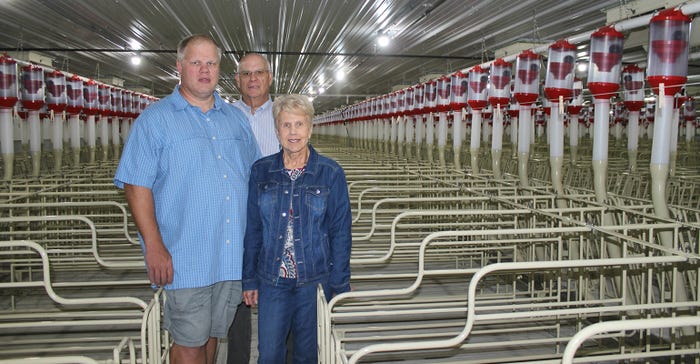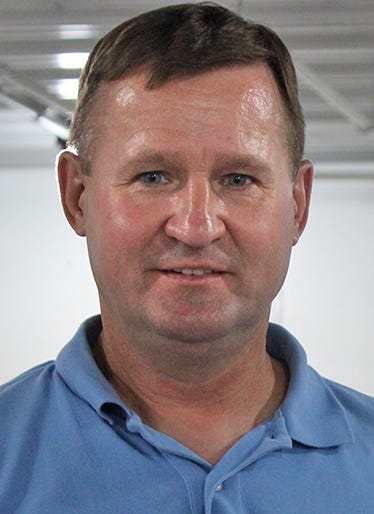
Editor's note: This is the final article in a three-part series on the opening of Delta Gilts. Here we look at the shareholders: who they are and why they invest. Make sure you check out the two stories from earlier this week: Wednesday's Delta Gilts opens sow unit in southeast Missouri, and Thursday's Take a peek inside a 5,500-sow unit along with the slideshow that takes you inside the unit.
A Missouri row crop farmer, an Illinois pork producer and two Iowa investors meet up at a farm. That could be the opening line to any good joke. However, it is the beginning of a new sow multiplier unit in southeast Missouri.
There is often a certain amount of misconception when a company like Pipestone System comes into a region to build a hog facility. The assumption is that the Minnesota-based company owns the pigs and is integrated from top to bottom. However, it is actually a shareholder-based company, where the farmers own the pigs and the buildings. And in the case of its newest project, Delta Gilts just west of Morley, four families of farmers and investors own the facility.
Manure man
For Missouri row crop farmer Patrick Hulshof, investing in Delta Gilts was about gaining nutrients for his crops in the form of manure. He along with his wife, Robin, and father, Vince, raise corn, soybeans and wheat in Scott County. "No," he says laughing, "we do not have any pigs or livestock."
His father grew up raising hogs in 1978, back when most farms in the area had livestock. "I had 100 sows back then," Vince says. So the family is familiar with pork production, but they are not active in it. Rather, they focus on grain production.
The family rents the land surrounding the Delta Gilts site. Raffety & Company, a grain farm near Wyatt, owns it. "We talked about enhancing the farm ground and decided that the nutrient value from the manure produced by the unit would be a good fit," Patrick says.
Manure will be pumped from the pits below the barns twice a year. It is enough to cover roughly 1,000 acres. The Hulshofs will inject the manure directly into the soil.
The family will also provide trucking needs for the facility. With biosecurity being paramount, only trucks from the Hulshofs will transport pigs from the facility. Once the pigs leave the facility, they may travel to other PIC farms or to a farm owned by the Biddle family of Illinois.

MORE PORK: Illinois pork producers Grant (from left), Dennis and Davis Biddle make raising and investing in hogs a family affair.

Pig purveyors
This is the first Missouri hog facility investment for brothers Dennis and Davis Biddle of Joy, Ill. They own finishing barns near the Quad Cities.
"We will sell the gilts to facilities all over the Midwest," says Dennis. The young females will be picked up from Delta Gilts weighing roughly 14 pounds. Some will end up in other PIC sow multiplier units.
The barrows will be all taken to Illinois, where the brothers contract with local farmers to finish the hogs. Dennis says the hogs sell to companies like Smithfield and Rantoul Foods. "Our meat ends up in countries like China and Russia — all over the world — as well as the U.S.," Davis adds.
The Biddles brought Davis' son, Grant, into the operation. This is their first time investing in a Pipestone System. "They are just well-managed inside and out," Davis says. "The care they have for the people and pigs is second to none. It is a world-class outfit." So far, the brothers agree, their first investment in Missouri is proving to be a "pleasant experience."

MORE MONEY: Iowa investors Adam (from left), Claude and Mary Greiner find that investing in hog facilities makes money — so much that the family invests in hog operations in Iowa and Missouri.

Iowa investors
Like many Iowans, Claude and Mary Greiner were both born and raised on a hog farm. The Kalona couple no longer actively farm, but still own farmland that they lease.
For the Greiners, along with their son, Adam, this is not their first investment in a hog facility. They are shareholders in finishing and farrow-to-wean units in both Iowa and Missouri — all of them are part of the Pipestone System.
Investing in hog operations is about one thing — money. "I invest in things that make money," Claude says. "And these make money."

MORE MANAGEMENT: For Bob Fobian, good management is the key to successful hog operations. He finds that investing in Pipestone System units like Delta Gilts brings with it top-notch management.

Fellow Iowan Bob Fobian says it is all about investing in the right system. "Pipestone does a wonderful job with managing the sites," he says. And location matters, he adds.
Fobian says the Delta Gilts site in southeastern Missouri is ideal for hog production. "They can store the manure on-site and inject it right into the fields surrounding the barns," he notes. "And it is not around another hog site, which is good for disease control."
It took a Missouri row crop farmer, two Illinois pork producers and two Iowa investors just a year of negotiations — and eight months of building — to bring Delta Gilts to fruition. "Ultimately, our goal is to make money, provide jobs for people and feed the world," Claude says.
About the Author(s)
You May Also Like






